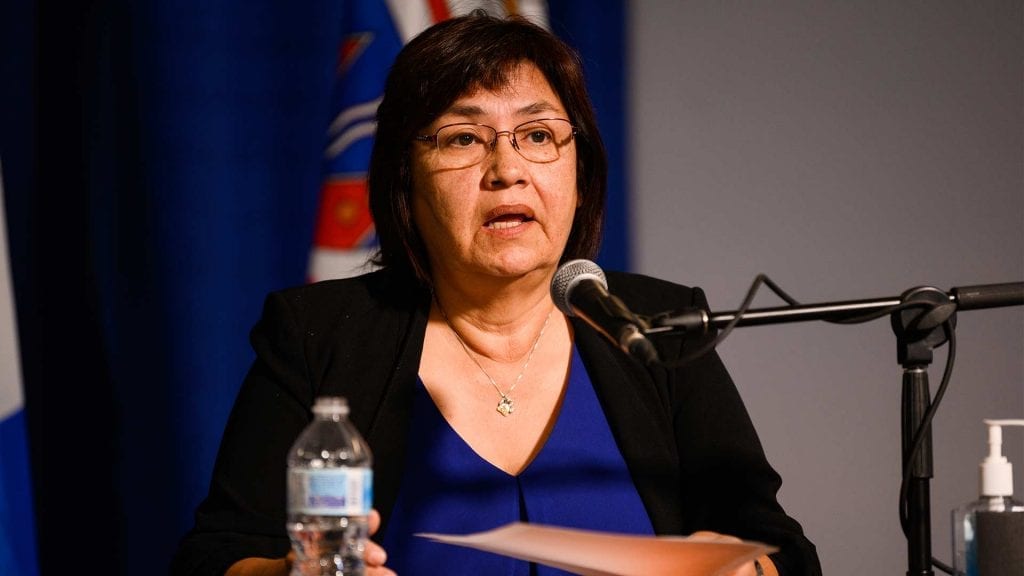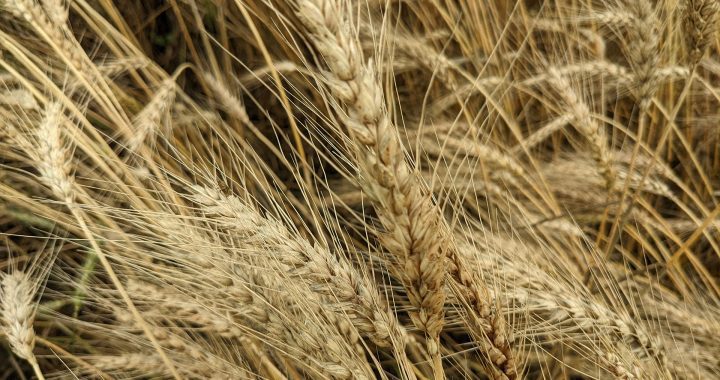
Kwanlin Dün First Nation Chief Doris Bill says more resources are needed to stem overdoses in the Yukon. Photo: Yukon
The chief of Kwanlin Dün First Nation says stressors like lack of affordable housing, overcrowding an a lack of treatment facilities are contributing to the high opioid death problems in the territory.
Doris Bill said the situation is extremely concerning.
“Community leaders and health officials have known for years that Indigenous people have disproportionately been impacted by the overdose crisis,” she said.
According to the territory’s coroner, 13 people have died this year in the Yukon as a result of a drug overdose.
Heather Jones said of the thirteen deaths, nine were opioid related. Five of the nine opioid related deaths were First Nations.
Jones said she has no data regarding whether the other non-opioid overdoses may also be First Nations.
“Clearly, clearly, clearly, the numbers we are seeing this year are a cause for real concern and deep sadness,” she said.
A handful of officials, including Health Minister Pauline Frost, Kwanlin Dün First Nation Chief Doris Bill and Dr. Brendan Hanley, Yukon’s chief medical officer, spoke of the territory’s ongoing problems with opioid addiction and this year’s spike in opioid related deaths.
Opioids such as fentanyl, morphine, oxycodone and hydromorphone are medications that can help relieve pain,” according to the Government of Canada website. “Opioids are drugs that affect your mind, mood, and mental processes and can also cause euphoria, or the feeling of being “high,” This creates the potential for them to be used improperly.”
Since 2016, around 40 people have died in the territory due to drug overdose. More than 30 have been linked to opioids.
This year has seen the highest amount of drug related deaths, with a majority of the individuals being in their 20s and 30s.
Read More:
APTN News: Fentanyl
The Kwanlin Dün chief said funding for First Nations has left gaps in the territory’s ability to tackle addiction issues.
While Bill applauds traditional healing methods, like the Kwanlin Dün land-based healing camps, she said it “only addresses a few of the gaps.”
“Moving to a place where people can use safely with health and mental wellness support is ideal,” she said.
Bill said COVID-19 also contributed to overdoses and other drug related problems, as drug users were told to distance themselves and stay home to curve the spread.
“Unfortunately, this also led to people being more isolated, to be alone, and to use alone. At the same time, we saw a decrease in support and services reaching out to vulnerable citizens,” she said.

Health Minister Pauline Frost said work is being done to tackle the Yukon’s drug crisis, such as expanding the territory’s drug testing capacity and harm reduction education, ramping up its take-home naloxone program training and exploring a supervised consumption site and safer supply chain.
This week the community of Watson Lake will begin an enhanced training program and has created a harm reduction adversity board as part of its community response.
Frost said the territory is also looking at more options for traditional healing methods for First Nations, like land-based initiatives and holistic approaches.
She said all Yukon First Nations communities have social workers and mental wellness supports, and that the territorial government is working to provide these communities with a wellness initiative and wellness plan in the coming months.
The opioid epidemic is also hitting other provinces as well.
In British Columbia, the coroner’s services said that there was 175 suspected overdoses in June which represents the highest number recorded in the province to date.
Saskatchewan is reporting 40 deaths so far this year – the majority of them are First Nations people.
In Toronto, paramedics responded to 1,307 suspected opioid overdose calls just in Toronto alone, including 71 deaths in the first four months of 2020.









